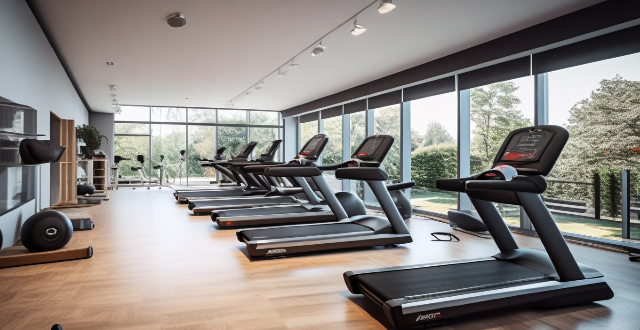AI is revolutionizing the sports equipment industry by optimizing performance, enhancing safety, and enabling customization. It analyzes data to improve club design, predict ball trajectories, and monitor athlete safety with smart sensors. AI also personalizes equipment like running shoes based on gait analysis and adapts to individual needs during use. Additionally, it aids training and coaching through shooting analyzers and virtual coaches. Wearable technology with AI tracks body metrics and optimizes training. As AI advances, further innovations in sports equipment are anticipated.

AI Impact on the Development of New Sports Equipment and Gear
Artificial Intelligence (AI) has been making waves in various industries, and the sports equipment sector is no exception. The integration of AI technology can significantly impact the development of new sports equipment and gear by enhancing performance, safety, and customization. Let's delve into some key areas where AI can make a difference:
1. Performance Optimization
AI algorithms can analyze vast amounts of data to optimize the design and functionality of sports equipment. For instance, in the world of golf:
- Club Design: AI can simulate different club head designs and materials to determine which ones provide optimal swing speed and control.
- Ball Trajectory Analysis: AI systems can predict ball trajectories based on various factors like wind speed, spin rate, and club face angle, helping golfers choose the right equipment for their game.
2. Safety Enhancements
Safety is paramount in sports, and AI can play a crucial role in ensuring athletes are protected while using equipment. In football, for example:
- Helmets with AI Sensors: Advanced helmets equipped with AI sensors can detect impact forces and alert medical staff if a player sustains a potentially harmful blow.
- Smart Pads: AI-powered pads can monitor vital signs and offer real-time feedback on an athlete's physical condition during practice or competition.
3. Customization and Personalization
AI allows for greater personalization in sports equipment, tailoring products to individual needs and preferences. Here's how it can be applied in running shoes:
- Gait Analysis: AI can analyze a runner's stride and foot landing patterns to recommend shoes that provide the best support and cushioning for their unique running style.
- Adaptive Shoes: AI-enabled shoes could adjust their stiffness or cushioning based on the runner's pace or distance covered, offering a customized experience throughout a run.
4. Training and Coaching Aids
AI isn't just limited to physical equipment; it also enhances training methods and coaching strategies. Consider these examples from basketball:
- Shooting Analyzers: AI-powered cameras and sensors can track shooting accuracy, release times, and other metrics to help players improve their skills.
- Virtual Coaches: AI virtual coaches can provide personalized feedback and training programs based on an athlete's performance data, acting as a round-the-clock mentor.
5. Wearable Technology
Wearable devices integrated with AI capabilities have revolutionized how athletes monitor their bodies and train more efficiently. Examples include:
- Activity Trackers: AI-enhanced fitness trackers not only count steps but also provide insights into recovery time, sleep quality, and overall health metrics.
- Smart Clothing: Garments embedded with AI sensors can monitor muscle activity, body temperature, and other physiological factors to optimize training regimens.
In conclusion, AI stands at the forefront of transforming the sports equipment industry by introducing innovative solutions that enhance performance, safety, and personalization. As AI continues to evolve, we can expect even more groundbreaking advancements in this field.